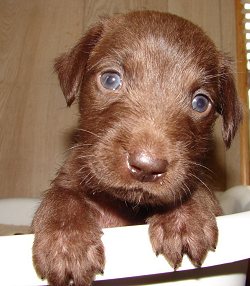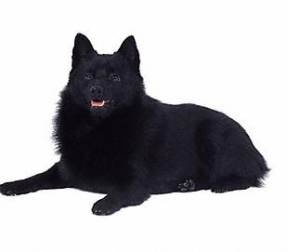Height: 10-13 inches
Weight: 12-18 lbs.
Life Span: 12-15 yrs.
Breed Group: Northern
Overview
The schipperke is constantly in motion, curious about everything and everyone--in
short, a delightful, furry busybody. Smart and stubborn, this dog does well
in obedience training only if its mulishness is pacified gently but firmly.
Some schipperkes can be difficult to housebreak; others may be possessive
of toys and food bowls. While most schipperkes enjoy children if socialized
at an early age, some can be nippy with children who don't treat them gently.
Schipperkes get along with other animals, yet strangers are treated warily.
With adequate exercise, they do well in city, country, or suburb.
Appearance
The outercoat is abundant, straight, and slightly coarse; the undercoat
is softer, thick, and very dense around the neck. The hair is shorter on
the face, ears, and legs. The hair on the rear forms a culotte that is as
long as the ruff. Coat color is black.
The face is foxlike, the ears small, triangular, and very erect.
Grooming & Exercise Needs
Schipperkes should be brushed once a week. They need vigorous daily exercise,
such as two or three fast-paced long walks.
Origins
The schipperke originated in 16th-century Belgium, where it kept canal barges
free of rats and watched for intruders. Schipperke is Flemish for
"little captain."
Breed-related health concerns: Legg-Perthes disease, hypothyroidism.
Reference: AKC - American Kennel Club |

